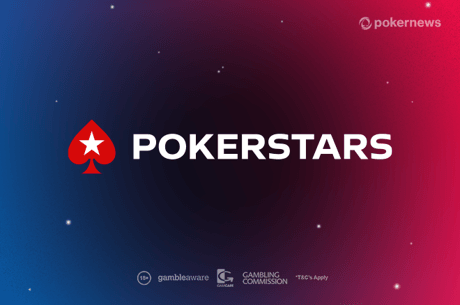The Business of Poker - Analyze This, Part Two

In Part One of my interview with Paul Leyland of Seymour Price, a London based investment firm where Paul monitors the online gaming space, we discussed the state of the online poker business. In Part Two we discuss the other possibilities for online gaming, and where it all may go. I found my time with Paul very educational, and I thank him for taking the time. Enjoy.
John: So, what do you think about multi-line products? Is the future in the sort of multi-line firms and firms that offer the poker, and offer the casino, and offer the betting, or whatever? Or is there enough legs specifically in poker?
Paul: There's enough legs in any individual product if you're a small enough and clever enough marketer to grow. You then find economies of scale in ad buying.. If you can have one CPA and cross-sell, it makes sense. If you think you can cross-sell products really easily, you'll lose. So it's more a question of will a poker company grow faster than a casino company? Yes. Therefore, is PartyGaming more likely to grow faster than 888 - all things being equal? Yes. Does that mean it should be on a higher rating? Probably not. Because in any rapidly growing business, there's a risk. Now if you're casino led, there's a level to which the market is more mature, and therefore more predictable. And there's a premium to predictability.
John: Right. So, what's next? With all these skins and everything that's out there, you're talking at least identifiably 500 plus online poker rooms. Now obviously of the 500 plus online poker rooms, there might be 25 systems running the platforms. It seems to me that at least in America the way it goes is, is it all just sort of feeds into each other, combining mergers and acquisitions into creating these big sort of monolith companies.
Is that where you see the online poker world going, five, ten years from now. In five years time, could there still be a sort of boutique online poker room?
Paul: I think there can. I think there absolutely can because right across the Internet in any industry that's involved, there's always a revenue share. And you make the most money with the best margins and the least capital, where you only do what you're good at. And there will always be value. The biggest monoliths will always pay people, to provide them with quirky new software, or highly targeted traffic. And if you're at one end or the other, you can add value. Then your exit strategy will be probably to get bought, which kind of justifies your argument. But then marketing techniques and technology will have moved on to the next boutique or pop up.
So, yes over time there will be a tendency towards consolidation. But over time new quirky ideas to justify new smaller companies will also spring up, just like in any industry.
John: Will there ever be a day where this will be considered a stable industry?
Paul: No. The regulation doesn't allow it. In two or three years I don't think it'll change very much. In four or five I think it will.
John: And how?
Paul: I think it's a maturity profile, maturity of the market, maturity of people looking at the space in a more sensible manner, and also maturity of the regulators. Both of those things will feed maturity in companies.
John: Will London continue to be the seat, and continue to develop further as the seat of the online gaming world?
Paul: Status quo - yes, absolutely. London brings two things that very few jurisdictions bring together. One, they bring a regulatory framework that filters through into the investment community that 'gets' gambling. Two, and more importantly, London as a financial center is geared toward small companies raising money. And a lot of online gaming companies may think they're big, but in the grand scheme of things, they're not.
And it requires a market that feels comfortable with small companies. Even small companies throwing off a lot of money for them to, to realize any value. The big danger is too many of those companies take the piss and London closes itself down.
John: Anything exciting upcoming that you can talk about?
Paul: Bingo, bingo.
John: See! That's what I want to talk about. Let's talk about bingo. Cause I've heard the people tout bingo, and I must say, at least my personal American perspective, I'm not sold. So tell me about bingo.
Paul: Well bingo is enormously exciting. It's more prevalent from demographic point of view than harder forms of casino. From a terrestrial perspective, certainly in the UK and to an extent elsewhere, it's attracting younger people now. From an entertainment perspective, it's a very easy sell. And from a community perspective, you can peddle a nice "soft gaming, it's not gambling, really", line.
That's all the blue sky. It's all great. Here's the problem. If you don't have liquidity and you don't have a community base in sight that offers people a cozy entertainment, and you don't have the right CPA's on the Internet, you ain't never gonna make any money. Therefore if you approach bingo from a hard gaming perspective, it's not gonna work. If you approach bingo from a terrestrial perspective, you don't have the technical marketing expertise on the Internet. So the key is for someone to cross-sell bingo at a marginal cost and gain the traction that way. Or, more likely to break the back of soft gaming on the Internet, and understand how to get the right CPA, and yet still target your traffic to the right people. If you're paying $350 for bingo, you're losing money. And it's that that's the key.
John: I guess in my mind I'm stuck in the demographic. The demographic of the average bingo player is the demographic of someone who's not an Internet user, because they're not under fifty years old.
Paul: Well here's the thing about that. Bingo suffers from being...bingo. In the UK, in terrestrial bingo markets, the fastest growing demographic in bingo is the eighteen to twenty-five year old female. They're also the second largest. That's a huge market. They go for bingo for entertainment. They go for bingo for a terrestrial experience. Now the conversions, may be difficult, but the model clearly works. The only thing of bingo is that off line bingo is 75%-80% women. On line it's only 60% women. So the product clearly has look through.
John: And you know why? Because men don't want to be seen in a bingo parlor, but they'll play on their couch.
Paul: Just like why women bet on the Internet, but not on the street.
John: Interesting.
Paul: The question is how to market the product. The product itself works.
John: Any firms that you can talk about, bingo related?
Paul: No, the problem, the problem is that the bingo, the bingo firms that are pushing bingo tend to be pushing from a back end point of view. That's not their target market.
From a front end point of view, bingo seems to be doing rather well for the likes of Yahoo, which makes sense, because they've got the traffic.
John: Right. So the operators that are approaching it at the moment are approaching from a back end point of view.
Paul: I've not seen anyone that's really convincingly cracked the marketing yet.
John: Paul, Thanks so much for your time.
Paul: My pleasure.








